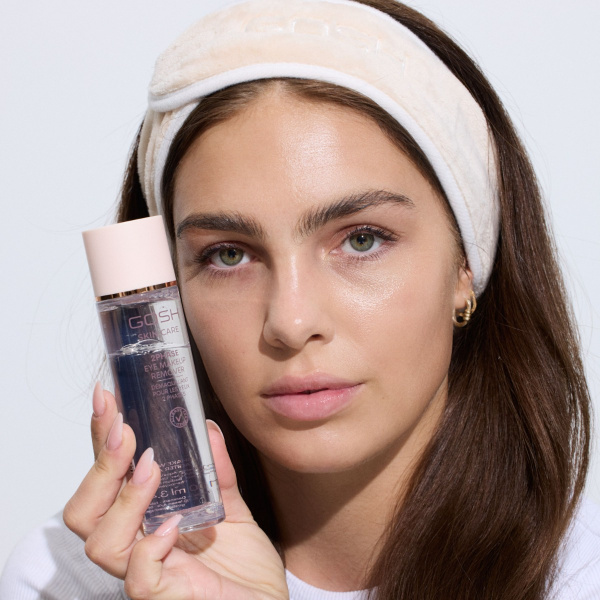
Soothing Anti Aging Creams for Sensitive Skin
What is Sensitive Skin?
Sensitive skin reacts more than normal skin. It can feel itchy, tight, or suffer from redness. People with this skin type must choose their skincare products carefully, especially anti aging creams.Anti aging cream for sensitive skin: They need creams that soothe without causing irritation.
Signs and Symptoms
Sensitive skin shows clear signs. Redness, itching, and dryness are common. Some people may notice swelling or a stinging feeling when they use certain products. Knowing these signs helps in choosing the right anti aging cream for sensitive skin.
Factors That Aggravate Sensitive Skin
Many things can worsen sensitive skin. Harsh weather, pollution, and stress are common factors. Even some skincare products can cause issues. Ingredients like alcohol, fragrances, and certain chemicals can trigger a bad reaction. To avoid this, it’s vital to look for anti aging creams designed for sensitive skin, free from such irritants.
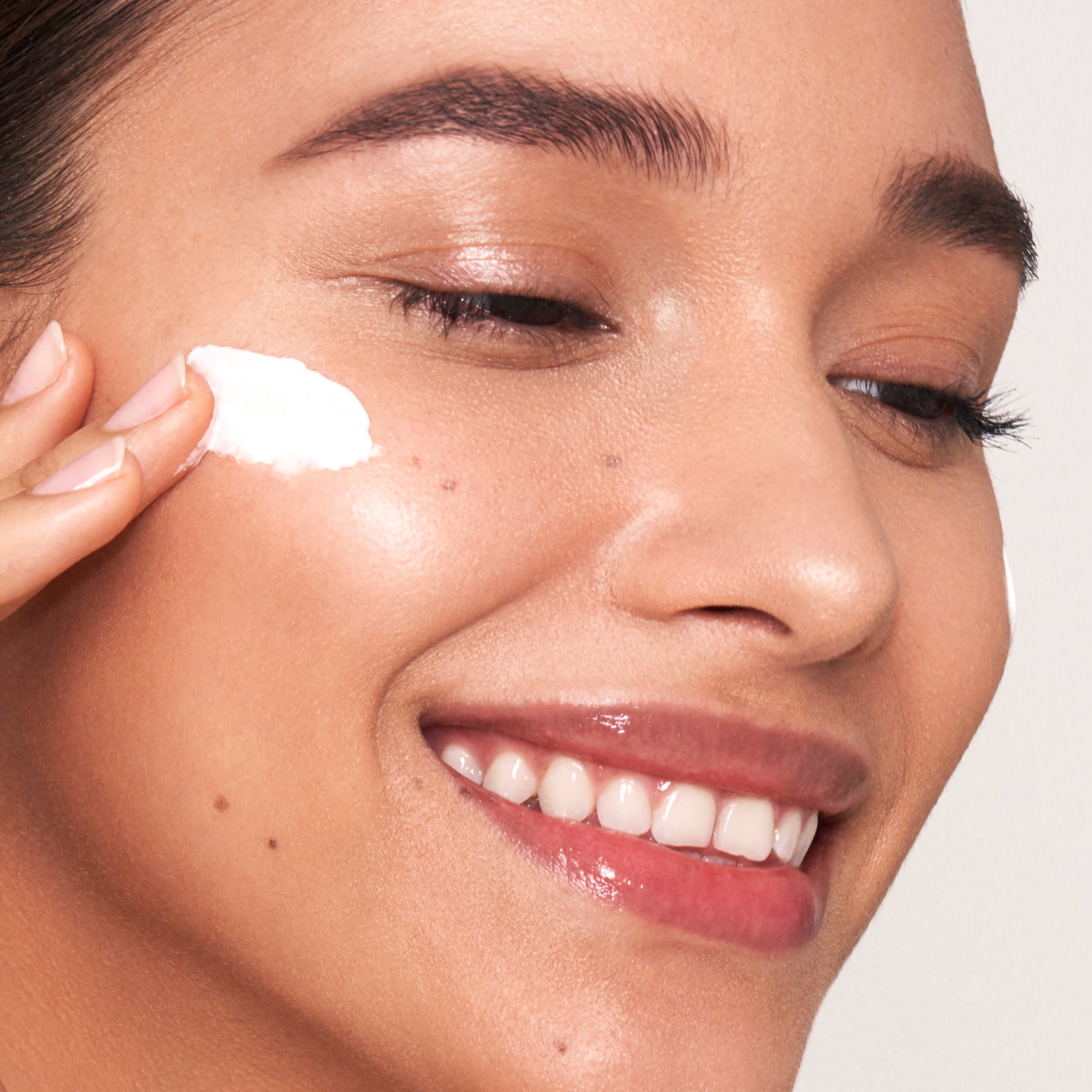
Key Ingredients in Anti Aging Creams for Sensitive Skin
Finding the right anti aging cream for sensitive skin can be a delicate balance. It’s essential to know which ingredients offer the most benefits without causing irritation. Here we explore some key ingredients that are both effective and safe for sensitive skin types.
Peptides
Peptides are small chains of amino acids that help in skin repair and rejuvenation. They encourage the production of collagen and elastin, making the skin firmer and reducing the appearance of wrinkles. Peptides are generally gentle and don’t irritate sensitive skin.
Hyaluronic Acid
Hyaluronic acid is famed for its hydration properties. It pulls moisture into the skin, keeping it hydrated and plump. This helps to lessen the visibility of fine lines and wrinkles. Its gentle nature makes it ideal for sensitive skin.
Ceramides
Ceramides are lipid molecules found in high concentrations within cell membranes in the upper layer of the skin. They play a crucial role in maintaining the skin barrier and retaining moisture. Using anti aging cream rich in ceramides can help strengthen this barrier and prevent irritants from affecting the skin.
Natural Oils
Certain natural oils like argan oil, jojoba oil, and shea butter are excellent for sensitive skin. They provide intense moisturization and have soothing properties that reduce redness and irritation. When choosing an anti aging cream, opt for one that includes these non-irritating oils to promote soft, supple skin without adverse reactions.
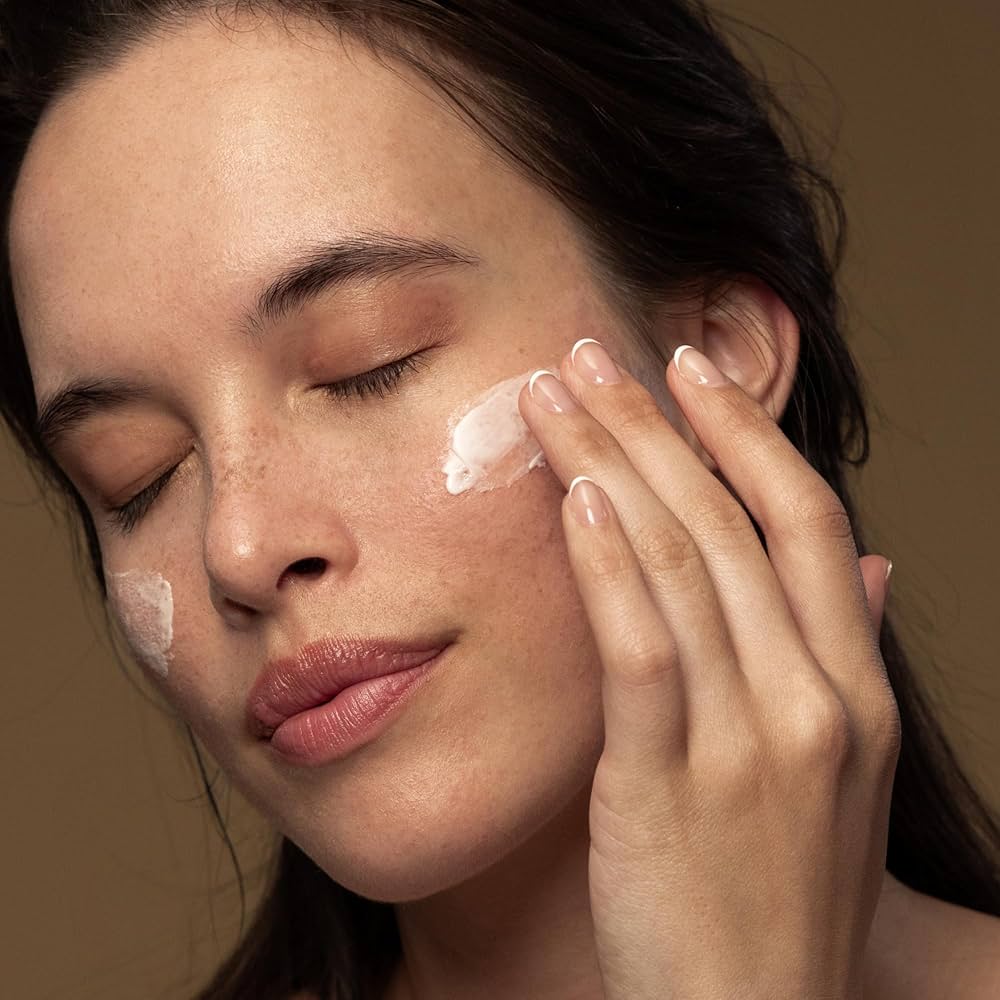
Choosing the Right Anti Aging Cream
Choosing the right anti aging cream for sensitive skin is crucial. The cream must nourish without triggering unwanted reactions. With numerous products in the market, making an informed choice requires attention to detail.
Identifying Non-Irritating Ingredients
Look for ingredients known to be gentle on sensitive skin. Ingredients like peptides, hyaluronic acid, and ceramides are beneficial. They don’t usually irritate sensitive skin. Also, natural oils such as argan oil, jojoba oil, and shea butter can calm and protect the skin.
Go for creams that are specifically labeled as suitable for sensitive skin. These creams typically exclude harsh chemicals. They often have fewer ingredients, minimizing the risk of skin irritation.
Reading Labels: Chemicals to Avoid
It’s important to read labels carefully. Avoid products with alcohol, synthetic fragrances, and sulfates. These can be harsh on the skin and lead to irritation. Also, steer clear of parabens and phthalates, as they can cause adverse effects.
A gentle formula that is hypoallergenic and non-comedogenic is ideal. These products are less likely to block pores or cause allergic reactions.
Testing Products before Full Use
Before fully integrating a new anti aging cream into your routine, do a patch test. Apply a small amount of the cream to a discreet skin area. Wait for 24 to 48 hours to see if there’s a negative reaction. This precaution helps ensure that the product is safe for your sensitive skin.
Remember, an effective anti aging cream for sensitive skin combines safety with efficacy. It should provide the desired anti-aging benefits without harming your skin.
The Role of Sunscreen in Skin Aging Prevention
Incorporating sunscreen into your daily skincare routine is essential for protecting against premature aging. Sunlight, particularly UV rays, accelerates the breakdown of collagen. This leads to wrinkles and sagging. Sunscreen blocks these rays, helping to preserve the skin’s elasticity and youthful appearance.
Benefits of Incorporating Sunscreen
Using sunscreen daily has significant benefits for sensitive aging skin:
- Protection from UV Rays: Sunscreen forms a barrier against the sun’s harmful UV rays, which can exacerbate skin aging.
- Prevention of Discoloration: It helps prevent sun spots and uneven skin tone, which are signs of aging.
- Reduction in Skin Cancer Risk: Regular use reduces the risk of skin cancer, a critical consideration as skin ages.
Recommended Types of Sunscreen for Sensitive Skin
For those with sensitive skin, choosing the right sunscreen is crucial. Here are recommendations:
- Mineral Sunscreens: Look for products containing zinc oxide or titanium dioxide. These ingredients are less likely to irritate sensitive skin.
- Fragrance-Free Options: Choose sunscreens without fragrances to minimize the risk of irritation.
- Broad-Spectrum Protection: Ensure the sunscreen offers broad-spectrum protection against both UVA and UVB rays.
By selecting the correct type of sunscreen and making it a steadfast component of your skincare regimen, you can effectively stave off signs of aging and maintain healthier, resilient skin.
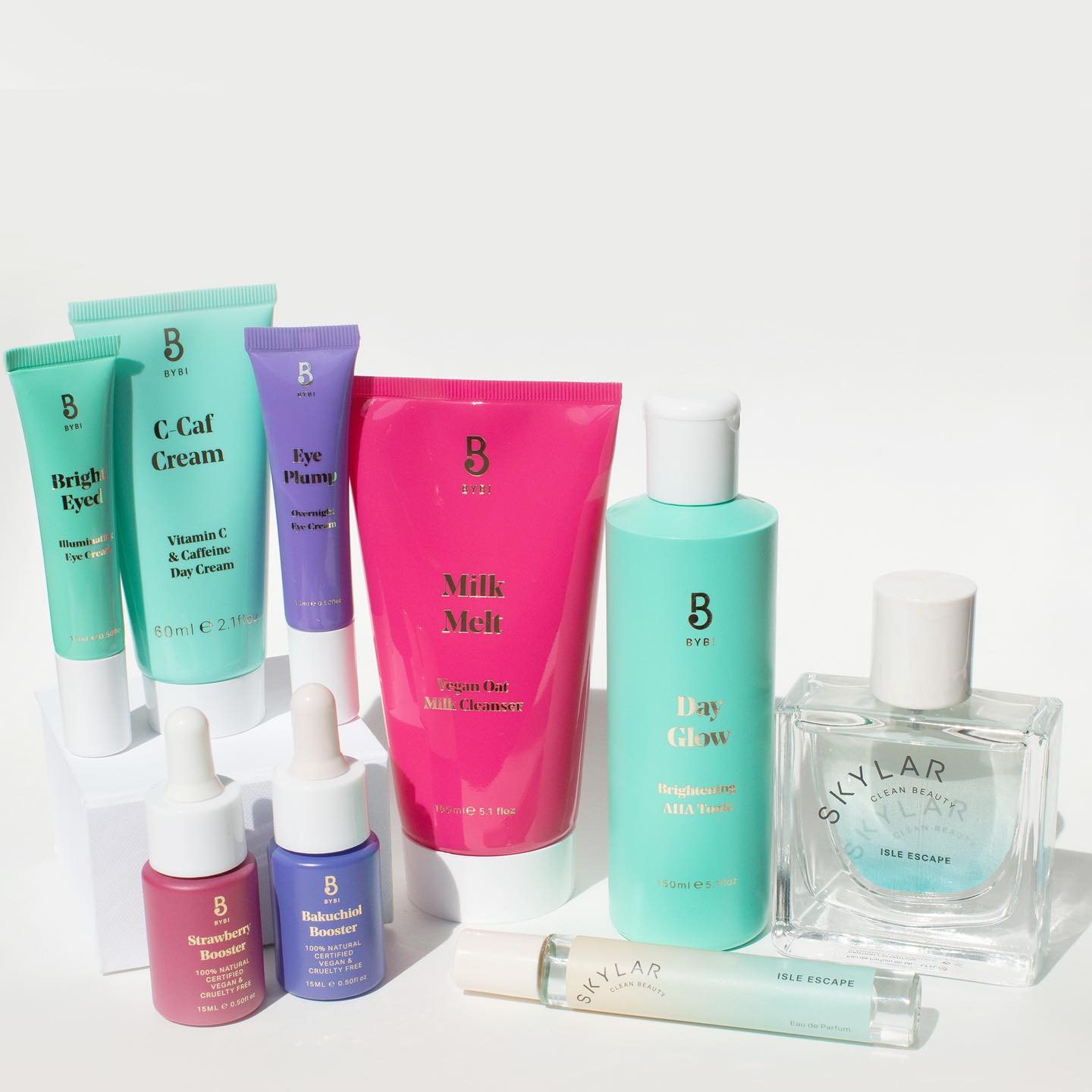
Daily Skin Care Routine for Sensitive Aging Skin
Creating a daily skin care routine is essential for managing sensitive aging skin. This routine should focus on gentle treatments that hydrate and protect without causing irritation.
Cleansing and Moisturizing
Choose a mild cleanser designed specifically for sensitive skin to start your routine. This helps to remove dirt and impurities without stripping the skin of its natural oils. After cleansing, apply a hydrating moisturizer. Look for products containing hyaluronic acid or ceramides, which help retain moisture and reinforce the skin barrier. Moisturizing twice daily can keep your skin supple and prevent dryness.
Importance of Gentle Exfoliation
Sensitive aging skin can benefit from gentle exfoliation. This process helps to remove dead skin cells and promote cell turnover. However, it’s crucial to use a non-abrasive exfoliant. Products with gentle natural exfoliants like jojoba beads are a good choice. Exfoliate once or twice a week, depending on your skin’s tolerance, to enhance texture and tone without causing irritation.
Top Rated Anti Aging Creams for Sensitive Skin
Finding the right anti aging cream for sensitive skin can be a challenge. The selection process is crucial to ensure the skin is nurtured without causing any distress. There are market leaders who stand out for their dedication to creating products suitable for sensitive skin that don’t compromise on anti-aging benefits.
Overview of Market Leaders
The top rated anti aging creams for sensitive skin often come from brands that specialize in gentle skincare. These market leaders usually promote products with soothing ingredients like peptides and hyaluronic acid. They are known for being free from harsh chemicals like sulfates and parabens. Look for brands that have a strong reputation for quality and have positive feedback from users with sensitive skin.
Some notable brands include Cetaphil, La Roche-Posay, and Olay. These brands offer creams that boost hydration and strengthen the skin’s barrier. Their products often feature key ingredients such as ceramides and natural oils. They cater to sensitive skin needs while still targeting signs of aging.
What to Look for in User Reviews
User reviews are an excellent source of truthful feedback. Look for reviews that mention product effectiveness for sensitive skin. Check if reviewers talk about any adverse reactions. Also, note the long-term benefits that users observe, like improved skin texture and fewer wrinkles.
Focus on reviews that discuss how well the cream adds moisture, soothes redness, and maintains skin comfort. These qualities are essential for sensitive skin products. Positive reviews often highlight the absence of irritation and allergies. They may also mention the ease of incorporating the cream into a daily routine.
In conclusion, when searching for the top-rated anti aging creams for sensitive skin, consider proven market leaders and scrutinize user reviews. This approach will help you select a product that offers both safety and effectiveness.
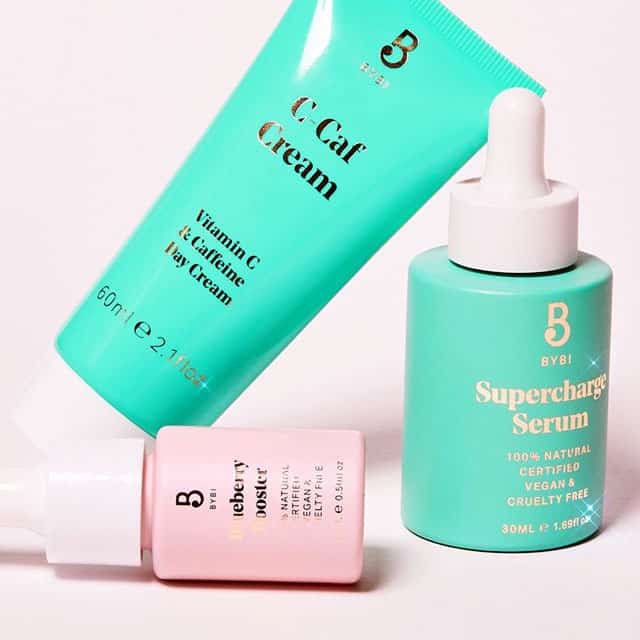
Long-Term Care Tips for Sensitive Aging Skin
Caring for sensitive aging skin demands a long-term approach. Adopting healthy habits can delay signs of aging and prevent irritation.
Lifestyle Changes That Help Protect Skin
To keep sensitive skin healthy, make these lifestyle changes:
- Stay Hydrated: Drink plenty of water to maintain skin hydration from the inside out.
- Maintain a Balanced Diet: Eat foods rich in antioxidants and omega-3 fatty acids. These nutrients support skin health.
- Manage Stress: Stress can trigger skin sensitivity. Practice relaxation techniques like yoga or meditation.
- Get Enough Sleep: Quality sleep allows your skin to repair and regenerate.
- Quit Smoking: Smoking accelerates skin aging and can worsen sensitivity issues.
- Limit Alcohol Consumption: Alcohol can dehydrate the skin. Drink in moderation.
These habits contribute to overall skin health and support the efficacy of your anti aging cream for sensitive skin.
Regular Dermatologist Visits
Scheduling regular check-ups with a dermatologist is vital for sensitive aging skin. They can:
- Monitor Skin Changes: Early detection of issues can prevent complications.
- Customize Skincare Regimens: They can recommend products that suit your skin’s needs.
- Perform Professional Treatments: Dermatologists can provide treatments that are too sensitive for over-the-counter products.
By following these tips and the daily skincare routine outlined earlier, you create a solid foundation for maintaining healthy, youthful skin over the long term.

